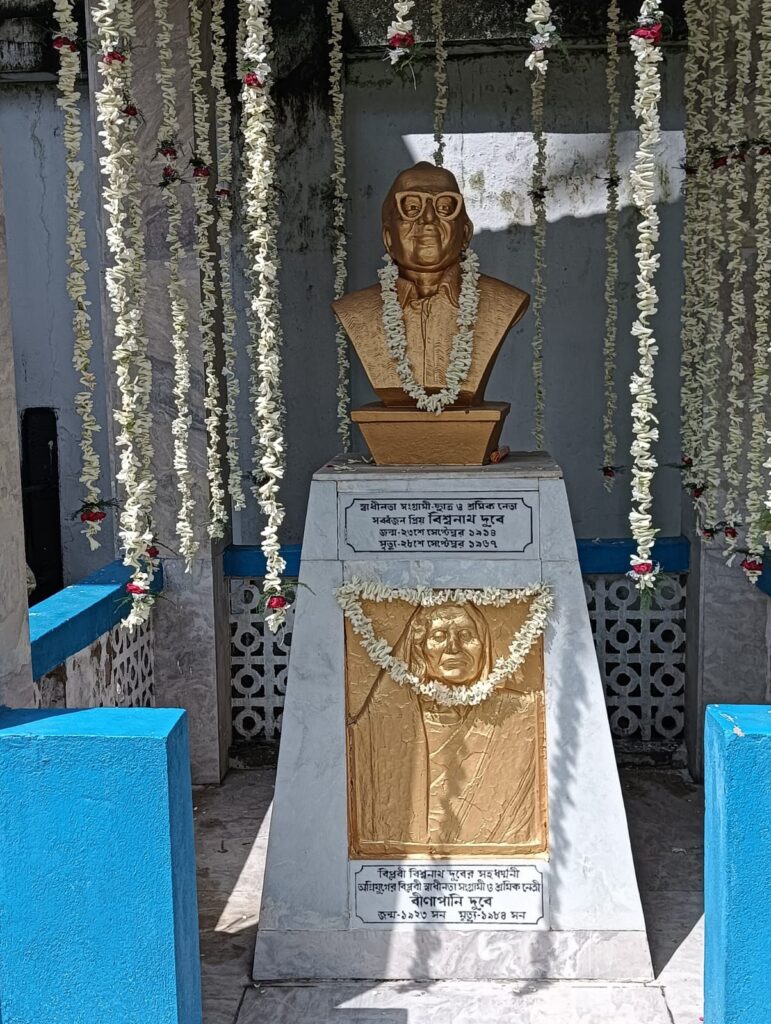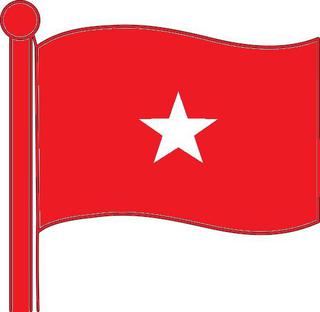-

Toggle to Expand/Collapse
-

Benimadhab Dubey
xx.xx.xxxx - xx.xx.xxxx

Krishna Dobain
xx.xx.xxxx - xx.xx.xxxx
-
Early Life and Family
Biswanath Dubey was born on September 23, 1914, into a deeply spiritual family in British-ruled India. His parents, Nepal Dubey and Kalaparaji Dobain, raised him in an environment where the seeds of revolution and the desire for social justice were sown early.
Biswanath had one sibling, a younger brother named Kedarnath. Kedarnath, married to Usharani Devi, was also instrumental in shaping the family’s legacy, raising three children: two daughters, Chhaya and Maya, and one son, Basanta, who carried forward the family’s values and traditions.

Biswanath’s intellectual journey was deeply influenced by his family’s reverence for knowledge and spirituality. He pursued a Master’s degree in Sanskrit from the prestigious University of Calcutta in 1934. His thirst for knowledge did not stop there. He went on to achieve an Acharya degree in Vedanta Shastra from Banaras Hindu University, demonstrating his commitment to understanding and mastering the ancient texts and philosophies of India.
In his personal life, Biswanath found companionship in Binapani Ghosh, whom he married. Together, they nurtured a family of five children: two daughters, Chitrarekha and Bharati, and three sons, Paritosh, Jagadish, and Bijoyesh. Biswanath’s role as a father was marked by his unwavering dedication to instilling values of discipline, education, and integrity in his children, ensuring that the Dubey family legacy of learning and social consciousness would endure through the generations. His family life provided him with both support and grounding during the tumultuous years of the Indian independence movement. Despite his many responsibilities, he remained deeply committed to both his family and his political causes.

Dubey's early life, marked by a harmonious balance of intellectual achievement and growing revolutionary zeal, laid the foundation for his future role as an influential leader in the Bolshevik Party of India and a dedicated advocate for labour rights. His legacy reflects a life deeply committed to both family and country, with his contributions enduring through generations. From an early age, he developed a deep sense of empathy for labourers and became involved in local labour movements. His passion for social justice grew, and he soon joined the labour struggles, advocating for better working conditions and wages in an era of growing industrialisation in India.
Biswanath Dubey passed away on September 28, 1967, leaving behind a profound legacy of intellectual pursuit and social consciousness. His death marked the end of an era for his family and the wider community he had influenced. Despite his passing, the values and wisdom he imparted continued to resonate with those who knew him, ensuring that his teachings and contributions lived on. His family, friends and followers remember him not only for his scholarly achievements but also for his unwavering dedication to uplifting society through knowledge and service.
Political Activism
Biswanath Dubey’s involvement in political activism began in his early twenties when he joined the Bolshevik Party. A charismatic leader, Dubey quickly gained the trust and respect of his peers due to his integrity and dedication. He led several successful campaigns that aimed at securing better wages and working conditions for factory workers. His activism was not without challenges, as he faced frequent opposition from both the political establishment and capitalist elites. However, Dubey’s resilience and ability to rally people around a common cause ensured that his efforts bore fruit, leading to substantial improvements in labor laws and social welfare initiatives.
Role in the Bolshevik Party of India (BPI)

As a dedicated labour organiser, Dubey’s leadership skills quickly caught the attention of the Bolshevik Party of India (BPI). He rose through the ranks to become a key figure in the party's trade union wing. His contributions shaped the party's approach to labour issues, particularly in unifying diverse labour groups under a common agenda. Dubey’s work focused on protecting workers' rights, securing better wages, and ensuring safer working environments. Under his leadership, the BPI’s trade union efforts gained momentum, making significant strides in the representation of workers in various industries.
The Split and Its Aftermath
In 1957, a significant schism occurred within the Bolshevik Party of India, primarily between Biswanath Dubey and Sisir Roy. The split was largely over ideological differences regarding the direction of trade union politics and the level of involvement in mainstream political negotiations. Dubey, advocating for more aggressive labour activism, parted ways with Sisir Roy, who favoured a more tempered approach. This division not only weakened the BPI’s influence in labour politics but also led to a realignment of trade unions across India. Dubey’s departure, however, created a new wave of labour mobilisation that he championed independently.

Formation of the West Bengal Dock Mazdoor Union

Following the 1957 split, Dubey founded the West Bengal Dock Mazdoor Union to address the growing unrest among dock workers, who were facing exploitation and unsafe working conditions. This new union became a symbol of post-split trade union politics, focusing on labour rights at key industrial hubs like the Calcutta docks. The union played a pivotal role in organising strikes and securing better working conditions for dock workers, significantly boosting Dubey’s reputation as a champion of the working class. His leadership of the union highlighted his ability to rally workers and maintain solidarity even after leaving the BPI.